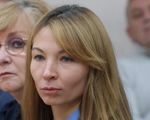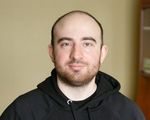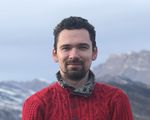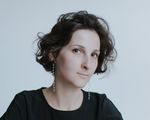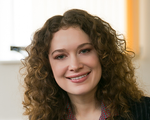About Success Builder
How do you find your place in life? How do you find something to do that both comes naturally to you and makes you happy? The answer is that you have to apply the knowledge you’ve gained from university and from life itself correctly. The Success Builder Project features HSE University graduates who have discovered themselves through an interesting business or an unexpected profession. The protagonists share their experiences and lessons learnt and talk about how they’ve made the most of the opportunities they were given.
When hard times hit the financial industry, economics university graduates gravitated to jobs in the public sector. Denis Deryushkin, head of the Energy Ministry’s Analytical Centre, told Success Builder how an ICEF graduate could wind up in a key role in the energy sector. He also explained how to monetise research skills, why government ministries are being reformed, the latest developments in the fuel and energy sector and what is so appealing about working for the state.
What was your dream job as a high school student?
I went to school in Nizhny Novgorod. In the 10th grade, they began pushing us to choose a future path and I very consciously chose economics. That was the cornerstone of my future career.
After completing a special economics class, it was only logical to continue my studies at HSE University. I spent a long time deciding between two excellent programmes: Finance and Credit or Mathematical Methods in Economics. I ultimately chose the latter, even though it was a highly specialised programme. I have never regretted my choice.
The Mathematical Methods in Economics programme was designed for a small number of smart and talented students. We had a close group of just 20 students. But I had already grown accustomed to the ‘club-like’ atmosphere typical of the ICEF master’s programme from my earliest undergraduate years at HSE. The curriculum reflected the crossover between computing and economics, and both were very in-depth. Keep in mind that this was back in 2006, when nobody was thinking about the rapid growth of IT or how that industry would merge with finance. So the programme turned out to be ahead of its time.
Did you plan to work or continue your studies after earning your bachelor’s?
This question never arose because I had planned from the very start to study full-time for six years and get a master’s degree. At the same time, I had taken steps towards a career while at the HSE campus in Nizhny Novgorod. I did two internships in local banks, but nobody in Nizhny Novgorod knew about the investment banking field back then, and even now, it’s not very popular there. One internship was at BSGV, now called Rosbank. That was very interesting, working in a corporate treasury with a lot of responsibility. This really inspired me, and a speech that an HSE Moscow graduate gave at the Nizhny Novgorod campus sparked my interest in the world of finance.
He gave an inspiring talk on how great it was to work in investment banking at UBS, which was very unusual at that time. When a guy with ambition and a desire to grow and develop beyond the usual linear track that corporate treasury and business work offer tells you that companies can be sold and bought, that you can work nights and days, fly on business trips, earn big money and gain international recognition, it makes you just burst with the desire to go into finance immediately. This success story inspired me and I began looking for ways to get a foot in this wonderful world of finance.
What made you so sure ICEF was a means to your goal?
At that time, the graduates of my programme had a good reputation at ICEF and some of them were already studying in the Financial Economics Master’s Programme. I first learned about ICEF from Olga Balakina, who now holds a PhD and teachers overseas. I remember how Olga invited me to an Open House event in Moscow. I came and saw how they studied and lived. (There was no dormitory at Dubki at that time, and everyone was staying in the Izmailovo Hotel.) I met several ICEF graduates during that visit and have kept in touch with them to this day.
I was very impressed with the ICEF culture. The master’s programme had a closeness and feeling of ‘family’ with an individual approach to every student, even while the academic demands and workload were very rigorous. This was all very much like what I had experienced in my bachelor’s programme. What finally clinched my decision was learning that all ICEF classes are conducted in English.
Did ICEF meet your expectations? How has the programme’s range of disciplines influenced your professional focus?
The students of the programme whom I had met beforehand were all pursuing a more academic path, but my goal from the very beginning was to work in the industry. While still a bachelor’s student, I was hooked on the story of the guy from UBS, and I was incredibly happy with the large number of applied subjects that ICEF offered. This allowed me to adjust my curriculum accordingly. The people who taught us had made names for themselves in the finance industry. They had direct experience applying the disciplines in which they were experts to real-world business problems. This was unique knowledge that we could not obtain anywhere else and it gave us access to major companies’ actual projects.
I hear increasingly often these days that higher education is useless, that it isn’t ‘flexible’ enough and that it’s better to take two-month courses instead. I strongly disagree. I can honestly say that every day in my work I use what I learned from two of my classes. The rest of what I studied in the programme proves useful about once every six months. But that’s the beauty of ICEF — you study a large set of different disciplines that provide a foundation on which you can build a career, without having to limit yourself to this or that specific field. All the other disciplines expand your outlook. The result is that, as a professional, you can find opportunities where different industries overlap, opening up new horizons. Programme graduates can work with quantum computers or become macroeconomists, using the very same knowledge to develop in completely different fields.
How did you start working in the investment industry?
I actually started working while still a student at HSE. Because I wasn’t receiving a student stipend, I had to find part-time work. The programme provided such an opportunity, despite being so challenging and academically demanding. I went to work at the ICEF Financial Economics Laboratory where I helped professors with research projects. I worked with Marie-Ann Betschinger, and some of that joint research served as the basis of my dissertation. Meanwhile, beyond the walls of the university, the Russian economy was going through its second wave of growth.
The financial markets grew uncontrollably in 2010. People in investment banks were earning millions of dollars a year, and even for students it was impossible not to work
The financial industry offered loads of interesting jobs. Banks recruited people at huge salaries. Investment banks and consulting firms were hiring in droves. Big American banks came to ICEF hunting for students for internships. I attended all such career fairs, eagerly spoke with bankers, asked about work, gained a feel for the dynamics of the field and made my first contacts with great pleasure and enthusiasm.
I managed to get an internship in the Equity Research Department of Deutsche Bank and was lucky enough to study companies in almost every sector of the economy to find those I truly found interesting. After graduating from ICEF, I began working in the Analytical Department of Alfa Bank, and with this experience, I later joined Bank of America, where I made a career for myself.
It was 2013, the oil industry was at the top of the stock markets and oil & gas analysts were all the rage. The global demand for them was so high that they had to spend most of their time in negotiations and business trips. When you are offered a job at a leading international bank where you will be working in a key sector of the Russian economy, you say ‘yes’ immediately. That is why I agreed without hesitation to switch over to Bank of America and begin studying the energy sector.
Who usually works in banks’ research departments? Which skills do such jobs require?
Equity Research involves a small team of from one to five people per sector. Such teams have very heavy workloads and, in addition to specialised education, research skills and an understanding of the industry — especially at the start —important criteria are sound logic and analytical skills. It is also very important that research department workers can work independently and have the ability to focus on only one thing over a long period. This is because you don’t have any assistants and must complete a great deal of work singlehandedly. The university does a good job of developing this skill in students.
You said at a webinar that it is normal for people in the investment field to go work for government agencies. How did this happen with you and why is it normal?
For all decisions, context is important. You need to consider the direction in which the country is developing and the geopolitical situation. For example, the investment climate has changed significantly since 2014. Foreign companies have greatly scaled down their branch offices in Russia. For various reasons, at least three major foreign banks have completely ceased operations in Russia. However, their employees, who received excellent training and learned a systematic approach to analytics, have become very popular in Russia’s civil service sector because the government must also adapt to the new conditions.
Import substitution applies not only to industry but also to specialists, who are a ‘product’ of sorts. Unfortunately, there is almost no reverse migration to Russia, so the import substitution of specialists occurs between sectors. People who held top jobs in Western companies began moving en masse into senior positions in the Russian government. Many of them came from the investment banking field. This is part of a larger trend, the demand for talented and high-quality personnel with a certain set of skills, a deep understanding of the economy, knowledge of finance and the ability to communicate on equal terms with Western business partners.
Western experts view Russia in a somewhat less flattering light now than they did in 2013. Therefore, it takes personnel who can perform at the same level as their foreign partners to overcome that scepticism. I left Merrill Lynch in 2016 after Institutional Investors magazine named me the Best Electricity Analyst in the EEMEA region (Eastern Europe, Middle East and Africa). Thus, two factors played a role in my move to the Ministry of Energy: the trend in which all global banks were cutting staff in Russia and the demand for personnel among Russia’s government agencies.
What was it like to make the transition from the investment business to a state agency?
The transition from banking to government work was difficult, not so much professionally as in adapting to a different corporate culture. Working in analytics, you develop the ability to delve deeply into questions that are new for you. If you don’t do that, at some point you lose your competency. The market will quickly realise this and stop considering you a top specialist. When I joined Bank of America, their oil & gas team was No. 1 in the region and I had to function at that level to remain competitive. In general, banking reminds me a lot of the HSE rating system, which I really appreciated at that moment.
In an international bank, you develop as a specialist within a Western model of well-established mechanisms. There is a clear career track and global tasks that are solved with the help of a perfectly developed system. And then, you suddenly find yourself in what is practically a public administration startup and you need to build everything from scratch.
I moved to the Russian Energy Agency, which is part of the Ministry of Energy. There, my colleagues and I created a new division, the Fuel & Energy Complex (FEC) Analytical Centre. We were essentially building our own energy civilisation and so we were jokingly referred to as ‘Aztecs’ for a while. The core of the team consisted of former investment bankers with extensive experience. They gave me a huge chunk of the work — from project management to building financial models and preparing presentations for the Ministry of Energy’s top management.
Tell us about this Analytical Centre under the Ministry of Energy. What does it do?
This structure has changed quite a bit during my time there. When I joined the FEC Analytical Centre, it dealt strictly with the oil & gas sector. Our team at the time consisted of five analysts. Now the Centre is a full-fledged part of the Ministry of Energy. Our team now has 40 people and covers almost all areas of energy, including petrochemicals, coal, hydrogen and others. Our activities now combine research and consulting. We have two main areas: support and development of reforms in sectors where we have the expertise, as well as providing assistance and advice to leading companies in our industry. In effect, we are the ‘think tank’ of the Ministry of Energy.
In a speech to master’s programme applicants, you said that ‘there is a certain romantic advantage to working for the state’. What did you mean?
The Analytical Centre now has leverage that makes it possible to carry out certain reforms. This makes you a person whose actions can bring about fundamental changes or initiate new lines of development within a specific sector.
Working in an analytical centre enables you to feel a bit like Stolypin, Witte or Gaidar
We do not directly affect the entire national economy, but we can do monumental things within the framework of the fuel & energy sector, including at the initiative of industry representatives. The effects of our actions are sometimes measured in the billions of dollars. One example is the reforms to the petrochemical industry that were designed to solve certain fundamental problems that had accumulated over many years.
The reform was aimed at stimulating the deep processing of gas to increase the state’s revenues through non-primary exports of oil & gas-chemical products. The Russian energy industry and the economy as a whole developed according to the unearned income model, but new challenges such as the transition to other forms of energy, the levelling off of oil demand and the rise of electric transport have compelled the state to diversify its economy.
At the same time, Russia has huge reserves of oil and natural gas. They can and should be used rationally while maintaining maximum added value within the country. To do this, it was necessary to push the petrochemical industry to develop. And we did this — after two years of detailed calculations, working with various ministries, justifying the need to allocate major funding and outlining the prospects for the multiplier effect that the implementation of the reforms would have for the country.
It was not until late 2020 that the project achieved success: the reforms were signed into law and will enter into force in 2022. We can already see how one government decision fundamentally changes the strategic focus of all oil & gas companies. They have started looking for ways to process their resources more deeply, attract additional investment and create new jobs and production. This will contribute to the creation of more added value in the country, which means additional GDP growth.
Ministries themselves are now undergoing reform. Why do specialists with a financial and economic background do so well in these revamped structures?
Many initiatives and reforms are now being proposed at the state level. Fortunately, the government and various federal executive bodies have learned to speak the language of numbers: not a single reform in the country can be implemented without financial and economic justification.
That is, to implement this or that transformation, a detailed study is needed, including an assessment of its influence at the level of companies, the budget and the multiplier effect on the economy. The state often acts as a co-investor, requiring a degree of profitability from the project, or at least a guarantee that it will not lose money on its investment. In any case, a serious and fundamental rationale lies behind every move the government makes, and this consists mostly of the work of economists and analysts.
The state has a great need right now for people who are good with numbers and who can evaluate second-order effects, the so-called multiplicative and indirect effects with which the state can provide economic growth, additional investment and new jobs.
Does an international education offer any advantages in working with Russian economic realities?
I wouldn’t single out Russia as a special territory because we are part of the modern geopolitical system along with other countries. Russia is one of the countries playing catch up, which means it needs more world-class specialists to develop effectively. My international experience now plays a huge role because the work of the Analytical Centre is integrating into the international process.
The Analytical Centre continues to accompany the OPEC+ deal, which we calculated from A to Z. A small group of stakeholders in the transaction, that includes the country’s top leadership, makes their decisions based on our calculations. I am personally an active participant in the negotiations as the co-chairman of the OPEC+ Technical Committee, where my counterpart from Saudi Arabia is the chairman and the head of OPEC, Mr Mohammed Barkindo, sits on the praesidium. It is difficult to imagine a job that calls for working on a higher scale than this.
It’s probably nice to leave Russia and boost GDP abroad, but if you have an international education, you can also use that knowledge to benefit your own country
The next wave of projects that we are preparing to do on the world stage concerns climate and everything related to climate policy and the transition of the fuel & energy sector.
Which ‘green’ reforms can we expect to see?
Whereas Europe has already developed a climate policy and has ways to regulate carbon and greenhouse gas emissions, this process is only just beginning in Russia. We stimulate the development of climate-related initiatives and work with the relevant agencies, including the Foreign Ministry that speaks for Russia in the international arena. Together with colleagues from the Ministry of Economic Development who develop Russia’s domestic regulatory frameworks, I am a member of several UN and G20 working groups. This very difficult and complicated work involves many government agencies and will last for at least several years.




